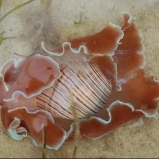Moreton Bay Research Station (MBRS)
The University of Queensland
Moreton Bay Research Station is located on North Stradbroke Island, providing direct access to the waters of Moreton Bay and the Pacific Ocean as well as the unique terrestrial environments of the 27,700 hectare sand island. Lying on the convergence of the eastern Australian sub-tropical and temperate zones, North Stradbroke Island and the surrounding waters support an incredibly diverse range of terrestrial, coastal and marine ecosystems on which to base research and education activities.
The Station offers a range of accommodation, modern research laboratories, teaching space and lecture theatres, boating and diving facilities and an exceptional location attracting scientists and academics from around the world each year.
- Website
- https://www.uq.edu.au/moreton-bay-research-station/research
- Organisation type
- University Research Centre
- Number of research staff
- Up to 20 research staff
- Address
- 37 Flinders Avenue, Dunwich, North Stradbroke Island QLD 4183
Strengths and capabilities
- Assessing and mapping biodiversity
- Conservation and human impacts
- Advance neurobiology techniques
- Endocrine analysis
- Environmental toxicology
- Aboriginal and cultural studies
- Biogeochemical cycling
- Effectiveness of Marine Protected Areas (MPAs)
- Mine rehabilitation
- Climate change impacts
Facilities and major equipment
- Physical Containment Class 2 (PC2) laboratory and Class 1 (PC1)
- 17000L recirculating saltwater aquaria system
- Research greenhouse
- Three research vessels
- On site equipment store
- Phase contrast and fluorescence microscopy
- Reverse Osmosis (RO) and Milli-Q Type 1 purified water
- Fixed laminar flow cabinet
- -80oC Freezer
- High-performance liquid chromatography (HPLC)
Lead researchers
- Professor Justin Marshall—Runs the Deep Australia Project and CoralWatch, the world’s largest citizen-science-based coral health assessment program
- Professor Richard Barnes—Ecology of seagrass beds and other coastal regions
Achievements of the centre
- Contributed to research on the impact of marine debris on sea turtles and sea birds, providing input to policy from a local to an international scale
- Featured in multiple international documentaries, including National Geographic’s documentary 'Manta Mystery', and Discovery Channel Canada documentary 'Project Manta'
Key science sectors
More information about the sectors this centre is involved in:
Update details
Is this your centre? See any issues? Send a request to update your listing.
